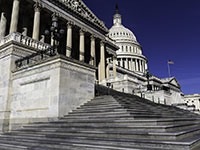On April 13, 2016, the SEC published a concept release discussing and seeking public comment on modernizing certain business and financial disclosures required by Regulation S-K, which lays out reporting requirements for various public company SEC filings. The release focuses on whether the disclosure requirements – many of which have seen little change in decades – continue to elicit the information that investors need for investment and voting decisions, and whether any of the relevant rules have become outdated or unnecessary. It also seeks input on how registrants can most effectively present material information, including how the Commission can assist with improving the readability and navigability of SEC filings. As SEC Chair Mary Jo White explained in an April 13, 2016 statement regarding the release, “[w]e want to make sure that [the Commission’s disclosure] rules are facilitating both timely, material disclosure by companies and shareholders’ access to that information. And we want to make sure that our requirements are as efficient as they can be.”
Regulation S-K Concept Release: Will the SEC Reform the Norm for Corporate Disclosures?




